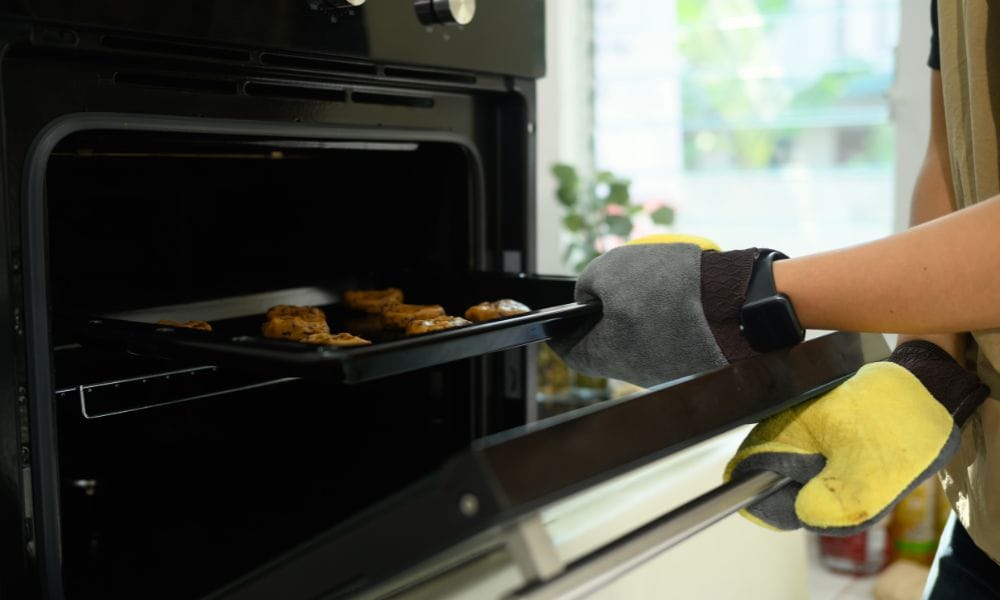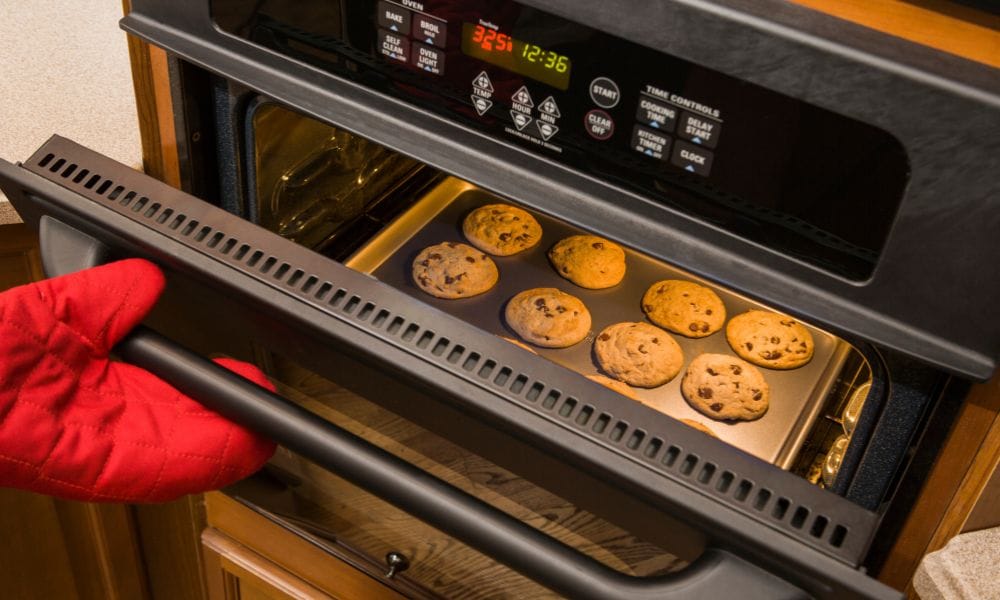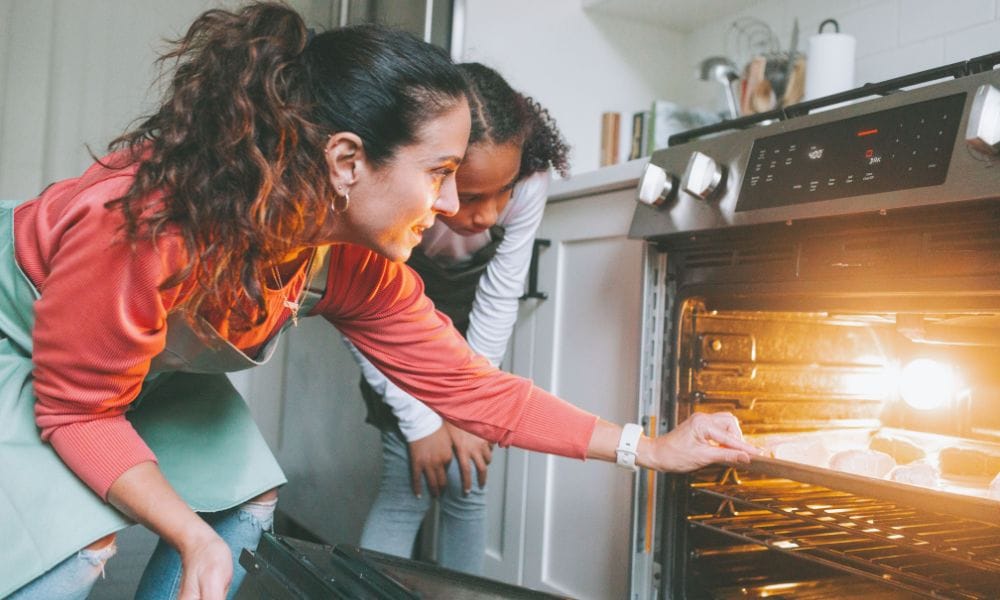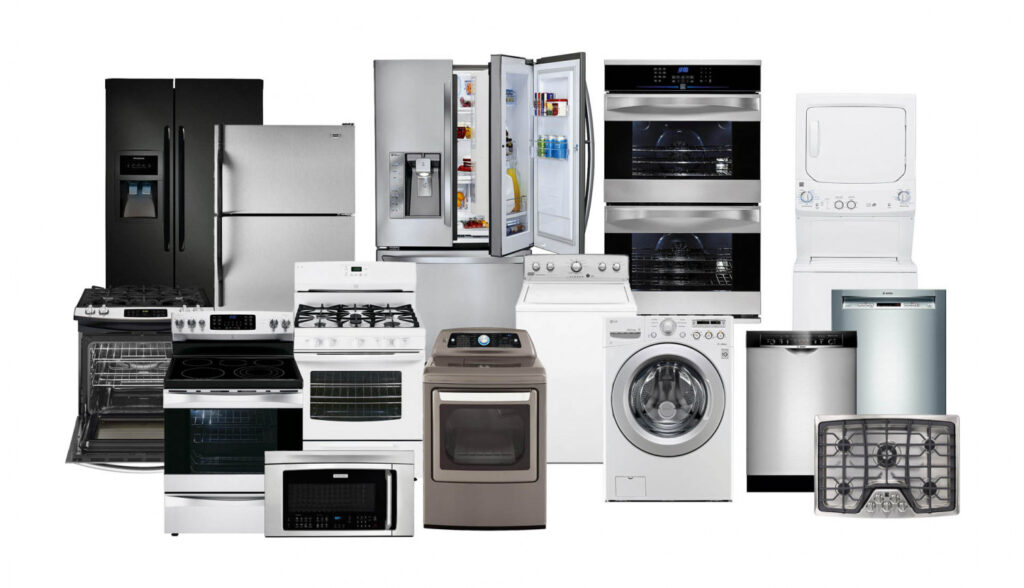In the fast paced homes of Victoria BC, waiting endlessly for your oven to preheat can be incredibly frustrating especially when you’re eager to bake that perfect batch of cookies or roast dinner for the family. But don’t worry this guide uncovers the real reasons behind the oven preheating problem, and offers smart fixes to restore your oven’s performance efficiently.
Whether you own a gas or electric model, this guide by Quick Fix Appliance Experts covers the causes, solutions, and maintenance tips to keep your oven working at optimal speed.
Common Reasons Why Your Oven Preheats Slowly
1. Faulty Heating Element
The bake element (bottom) or broil element (top) might be damaged. If it doesn’t glow red or heat evenly, it’s likely the reason your oven preheating problem is happening.
Fix: Replace the faulty heating element an easy and affordable repair that makes a big difference.
2. Door Seal Leaks
A worn or broken oven door gasket allows heat to escape, which forces the oven to work harder and longer to reach the set temperature.
Fix: Inspect the seal for tears or gaps and replace it if needed.
3. Broken Temperature Sensor
Your oven’s temperature sensor tells the appliance when to cycle the heat. If it’s faulty or out of place, it can misread the internal temperature and delay preheating.
Fix: Reposition or replace the sensor after testing it with a multimeter to solve the oven preheating problem quickly.
4. Power Supply Issues
A 240V electric oven that’s only receiving 120V due to wiring problems will struggle to heat up. This is more common than you’d think in older homes around Victoria BC.
Fix: Have an electrician inspect and correct the power flow.
5. Obstructed Vents
If your oven’s vents are clogged or blocked especially in built in units the trapped air slows down the heating cycle.
Fix: Clean vents regularly and ensure airflow isn’t restricted.
6. Dirty or Greasy Interior
A layer of grease or food debris can absorb heat instead of reflecting it toward your food, reducing efficiency and triggering an oven preheating problem.
Fix: Use a non abrasive oven cleaner to clean the interior monthly.
7. Preheating While Overloaded
Adding trays or heavy cookware before preheating is complete can absorb heat and delay the process.
Fix: Let the oven reach full temperature before placing anything inside.

Smart Fixes & Modern Solutions
Modern problems need smarter fixes. Here are ways to speed up oven preheating in 2025 and beyond:
Use the convection setting: It circulates hot air and preheats faster.
Keep the door closed: Opening it delays heating by 25°F or more.
Replace the control board: If delays persist, your oven’s brain may need an upgrade.
Install a smart oven thermometer: Get accurate temperature readings for better timing.
These can help eliminate the oven preheating problem from your daily routine.
Pro Tips for Faster Oven Heating
Keep the oven clean and the door tightly shut.
Only use high quality cookware glass and dark pans heat faster.
Preheat just before you’re ready to cook not long before.
Still dealing with an oven preheating problem? Check out this expert troubleshooting guide by Mr. Appliance on why your oven isn’t heating properly.
When Your Oven’s Age Becomes a Factor
Appliance aging is a significant yet often ignored contributor to slow oven performance. Ovens that are over 8 10 years old may begin to lose efficiency not because of one failing part, but because of gradual wear across multiple systems. Heating elements, thermostats, insulation, and control boards can all weaken over time. If your oven is old and you’ve already replaced one or two components without much improvement, it may be worth considering a full inspection or even an upgrade. Today’s smart ovens come with rapid preheat modes, energy saving features, and diagnostics that detect issues before they cause delays.
If you live in a busy household where cooking happens daily, investing in a newer, energy efficient model may actually save time and energy in the long run while solving your persistent oven preheating problem once and for all.

Understanding the Role of Oven Insulation in Preheating Speed
Many homeowners overlook the importance of oven insulation when diagnosing slow preheating issues. Modern ovens rely heavily on high quality insulation to trap and circulate heat efficiently. If that insulation begins to degrade due to age, moisture, or physical damage your oven will struggle to retain heat, making preheating a much longer process.
You might notice the oven light stays on longer than usual or that the outside of your oven gets unusually warm both are signs of heat escaping. Replacing internal insulation isn’t always a simple DIY task, but if your oven is more than 10 years old and preheats slowly despite a working element, poor insulation may be to blame.
In cities like Victoria BC, where homes often experience a wide range of temperatures, strong insulation is essential to keep your oven running efficiently all year round and prevent recurring oven preheating problems.
Final Thoughts
If you’re constantly wondering why your oven preheats so slowly, you’re not alone. At Quick Fix Appliance Experts in Victoria BC, we’ve helped countless homeowners speed up their cooking time with simple yet powerful repairs.
Don’t let slow heating ruin your meals know the signs, address the oven preheating problem, and follow these smart solutions to get your oven back on track.For more tips on how electrical issues might contribute to an oven preheating problem, explore our Voltage Effect on Appliances guide.
FAQs
Q1. How long should it take an oven to preheat?
A standard electric oven should reach 350°F in about 10–15 minutes. Anything beyond 20 minutes may indicate an oven preheating problem.
Q2. Is it safe to use an oven that takes too long to heat?
It’s generally safe but inefficient. Delayed preheating could waste energy and affect food quality.
Q3. Can I fix slow preheating myself?
Yes. Common DIY fixes include replacing heating elements, adjusting sensors, or cleaning the oven.
Q4. Should I always preheat my oven before cooking?
Yes. Preheating ensures even cooking and prevents undercooked or uneven meals.
Q5. When should I call a technician?
If replacing the element or sensor doesn’t work, it’s time to call a local repair expert—especially for electric wiring or control board issues that cause oven preheating problems.




